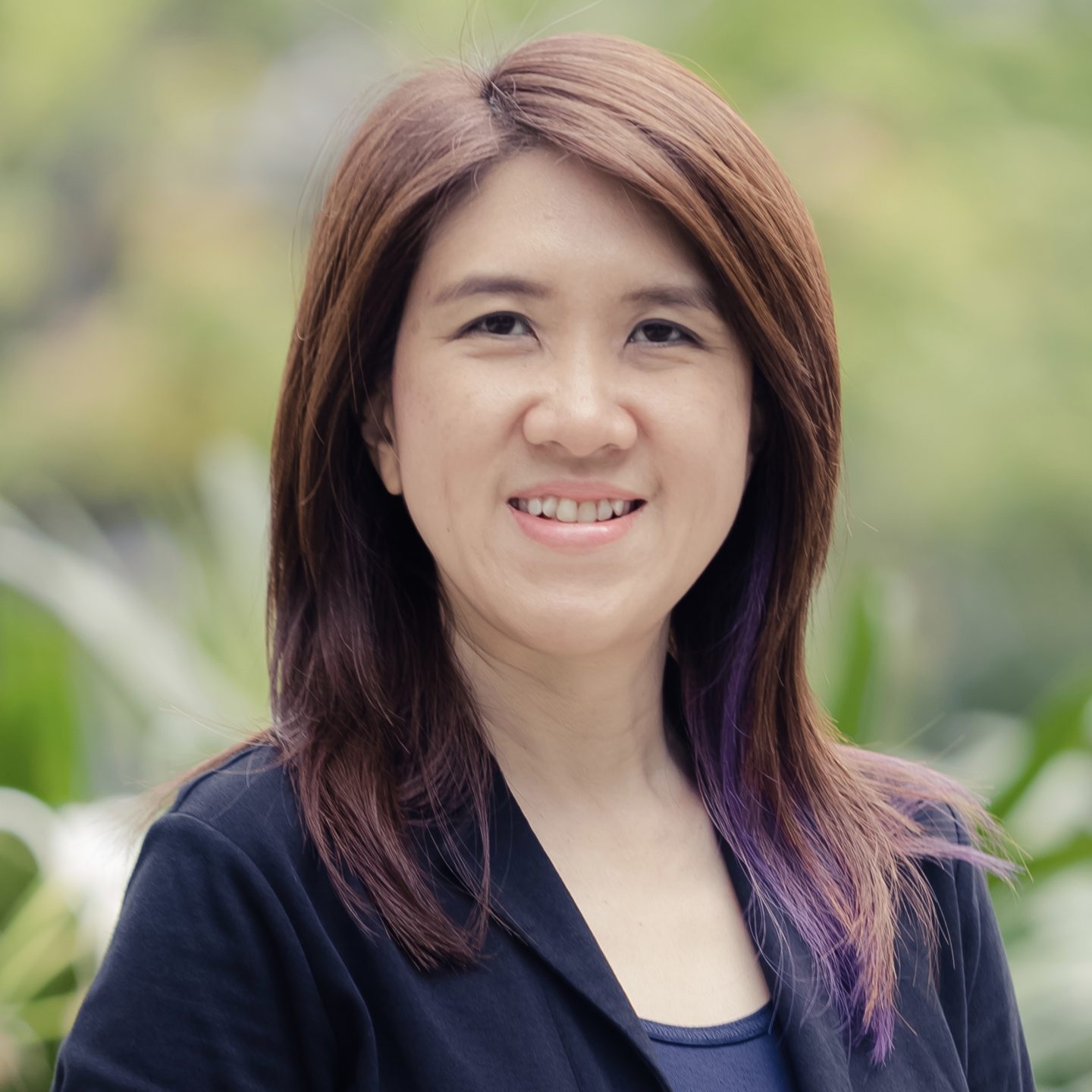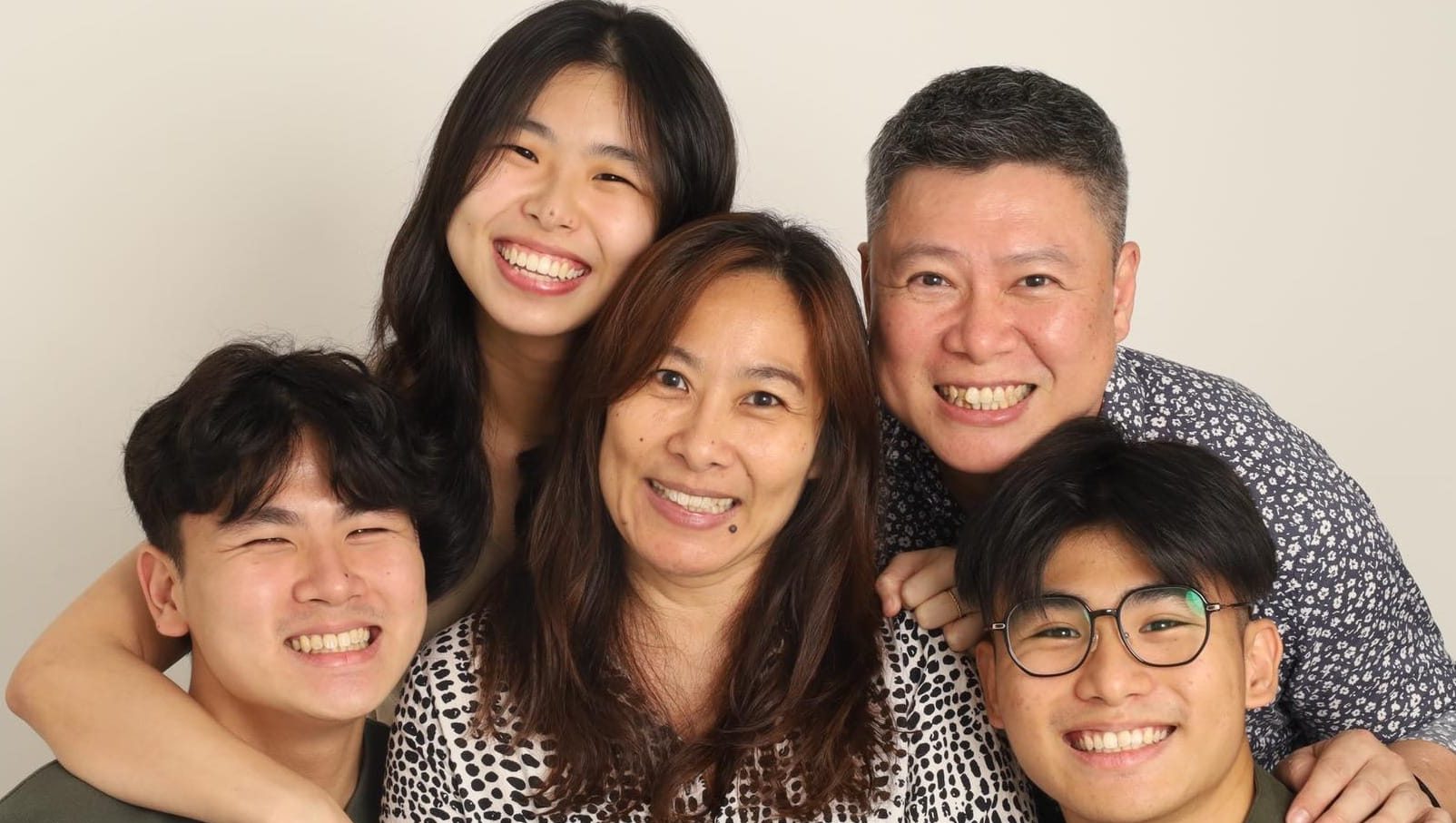Money talk: What these parents teach about managing finances and what their children learnt
by Christine Leow // November 30, 2021, 11:16 am

Asher Pei and his father Samuel Pei, Director of the KC Group, were on the panel of an N5 conference to share their family's values in terms of money management. All photos are screengrabs of the N5 conference.
During the Circuit Breaker, there was a sale of PRISM gaming monitors and televisions. The home-grown tech brand was offering high-end premium features at a discount and Thaddeus Tan thought it would be a great time to upgrade the family’s decade-old television.
“We got our TV in 2010 during the World Cup. So, I was thinking: Why not get a 55-inch LED TV? Watch Netflix, Disney+, football, everything also shiok (great).”

Thaddeus Tan, son of Christopher Tan, CEO of Providend Limited, had to rethink his proposal to buy a new television when he was told that he had to foot the bill.
His parents did not refuse him. Instead, they told him that if he wanted the new television, he should be the one to buy it.
“Immediately, that was a turn-off,” he said.
“Why not get a 55-inch LED tv? Watch Netflix, Disney+, football, everything also shiok (great).”
The final-year university student told this story to underscore how his parents taught him to think about the way money should be used.
In a true test of how well their lessons on managing money went down, and how much of what they taught was actually absorbed, three different parents and their children shared the spotlight on Straight Talk on Money and Parenting.
The panel discussion was part of the inaugural N5 conference (October 29-30). Inspired by Nehemiah 5, the conference aimed to equip believers to steward personal financial resources according to His Word and for kingdom purposes.
Thaddeus’ father, Christopher Tan, participated as well. Christopher is the co-founder and CEO of Providend Limited, the first fee-only wealth advisory firm in Singapore. Christopher is backed by nearly 20 years of experience in the wealth management and financial planning industry.
Carol Loi, co-founder of Village Consultancy which provides digital literacy education to families, educators, youths and children was also on the panel with her 16-year-old daughter, Gillian Soh.

Carol Loi, co-founder of Village Consultancy, believes in imparting values about money to her children through day-to-day events.
Samuel Pei, the Director of KC Group of Companies, one of Singapore’s fastest growing hair and beauty groups, and his son, 11-year-old Asher, completed the panel.
Here is what these parents taught their children. Did the lessons stick?
What the parents taught
#1: Teach about money as part of discipleship
“We don’t set aside time to talk about money specifically,” said Christopher.
“You earn so much for internship. In order to get that, how long do you have to work?”
Instead, he and his wife impart values during “teachable moments when certain circumstances happen”. Because of his expertise in the finance sector, Christopher also teaches his son about investing.
Carol agreed. “I teach about money as part of doing life. When we walk in a shopping mall together, I would just pass a comment, ‘That bag, I need to speak for three sessions in order to buy that bag. Does it make sense?’
“Then, I translate it into, ‘You earn so much for internship. In order to get that bag, how long do you have to work?’
“It’s part of discipleship.”
#2: Lead by example
Carol and her husband model godly stewardship of money by tithing and giving regularly as well as blessing others in practical ways.
“We have been hosting guests in our home and buying (things for them). That is how the children experience giving and they learn best through personal experiences.
“When all of us are able to do life together, that would flow into our children as they observe how we spend money individually and as a family.”
Samuel agreed: “Children will watch how you allocate your resources. What kind of car you want to drive, what you buy, wear.
“If we tell them to live a life of simplicity and we seek material stuff, then there will be this conflict that they will have to deal with in their heads because the theory is not practised even by their parents.”
“We can let our children know that the language of love is not just money but time.”
He admitted that parents do want to provide the best for their children to show love but that need not translate into material things.
“The latest gadgets, toys, the most expensive sports and music lessons and holidays, these may not equate to the best outcome for our children’s development.
“What kind of value systems are we instilling in our children as we show that we love them?”
Parents can redefine what is considered “best” for their children, he added.
“The ‘best’ can come in the currency of time and availability.
“We can let them know that the language of love is not just money but time, that we are always there for them and they are rooted firmly in the foundation of love.”
#3: Stand by your principles
Sometimes, not giving too much money to the children can be tough on the parents.
Said Christopher: “The hardest part about being a parent when it comes to money is when we turn soft.

Christopher Tan struggled when he decided not to provide his children with everything that they wanted, instead insisting that they pay for their own driving lessons.
“When we look at other parents, we feel guilty and we want to do the same.”
When his children – a son and a daughter – were old enough to take driving lessons, he and his wife made the decision to have their children finance their own lessons “so that they have to save for it”.
“We told him, ‘No car. You’re not earning money yet.’”
Other parents were footing the bill and he questioned himself: “Are we lousy parents?”
But they stood their ground.
When his son Thaddeus went to the university, he asked for a car because the commute from the East where they lived to the university in the West of Singapore was very long.
“We told him, ‘No car. You’re not earning money yet.’”
Thaddeus decided to buy a motorcycle for himself instead. Though they worried about his safety, they did not change their minds about the car.
“We said, ‘Pray before you ride. Your life is in God’s hands.’”
#4: Expose children to different social classes
Samuel admitted that living simply can be difficult to exemplify when children are exposed to opulent lifestyles.
It is important to “prick the bubble that they live in” and expose children to those who are “not like them and need our help”.
He recounts an incident told to him by his friend.
His friend’s daughter was once invited to a birthday party some 10 years ago. For door gifts, the parents of the guests were given digital cameras. There was a lucky draw as part of the party and his friend’s daughter won the seventh prize. It was an iPad which had just been released then.
“How can we be living in a world where we know that there are these social differences?”
Samuel maintained that it is important to “prick the bubble that they live in” and expose children to those who are “not like them and need our help”.
#5: Be age appropriate in teaching about money
Teaching the value of money has to be done in an age-appropriate manner, said Carol.
“Children need concrete things to understand the concept of money.
“When we teach numeracy, the teachers would help them to count real things to help them to conceptualise that one is this quantity and 10 is this quantity.”
She started her children out by giving a daily allowance at primary school.
“When you see them using that wisely, give them a weekly allowance.”
“They need to understand this is real money and not just digital points that can be replenished with a click of the button.”
Then, she worked towards a monthly allowance when they were older. Now that her daughters are in their teens, the question of whether they are ready to own a card has arisen.
Until they have grasped the concept of responsible use of money, giving them a card to use may not help them manage money wisely, said Carol.
Christopher agreed that cards and e-payment apps, introduced before children can fully grasp the concept of money with the use of cash, can be shocking to children.
“They need to understand this is real money and not just digital points that can be replenished with a click of the button.
“We have to explain that when they use cards or apps, we are really using money. When you run out, we are not going to bail you out by giving you extra money.”
#6: Keep it real
“We tell our children that money is hard to come by and how many hours we work to be able to afford something,” said Christopher.
His daughter is now 19, and has just completed her internship and is working part-time.
“We tell her, ‘You work this much, your internship pays you this much. You take a Grab to work and it’s S$20. That’s a huge percentage of what you earn.
“It doesn’t make sense. So, why don’t you just wake up earlier and take a bus?’”
What the children picked up
#1: Do I really need it?
This was the question most of the children remember.
Said Christopher’s son Thaddeus: “My mum is with me most of the time. I learnt about the value of money from her, that money is not easy to come by.
“It helps me to cherish the things I buy and to think whether I need something before buying it.”
Carol’s daughter, Gillian, was taught the same thing from young. As a child, she loved Lego blocks. Whenever she was out with her parents, she would ask them to buy her some.

Gillian Soh credits her parents for laying a Biblical foundation which has helped her know how to spend wisely.
“They would say, ‘Is it a need or a want because we have a lot of Legos at home.’”
In time, she learnt to see that not everything she wanted was a necessity.
#2: Stand firm
Gillian admits it can be tough being frugal.
“I want to be according to what God wants me to be.”
“My friends buy a lot of trendy things like bags, music, K-pop merch. They buy a lot of stuff in bulk.
“I always think, ‘Is the stuff a need or a want? I do feel conflicted: Do I follow my friends or stick to the principles my parents taught me?”
Asher, Samuel’s son, agreed.
“My friends are allowed to spend a lot of money on a new phone, new wallet, new watches. Then I used to find it a bit, like, unfair because I’m not allowed to buy these kinds of stuff and I only have one of each.
“Now that I’m older, I know it’s to help me not to spend money like that when I’m older so I can save money.”
Now, when his friends flash their branded bags and watches, or “wave their money about”, he ignores them.
“I want to be different. I want to be according to what God wants me to be.”
“When I go on social media, I just remember that God tells us to be contented with what we have.”
Thaddeus and Gillian maintained that their ability to stand firm now stems from being grounded in the godly principles taught to them by their parents or mentors. That foundation has helped them sieve through the hype on social media.
Said Thaddeus: “Knowing your purpose is very important as to deciding whether to get a certain thing that is promoted on social media.
“One thing that cannot lie is your conscience. This is influenced by your purpose of doing certain things throughout your life.”
So, when he encounters investment brokers promising the best fees, stories posted by friends of profits and losses they have made, or even accounts of how people made it rich by buying cryptocurrencies, he falls back on his Christian foundation.
Agreed Gillian: “When I go on social media, I just remember that God tells us to be contented with what we have.
“Then, I am aware that not everything there is good for us and some of the things are not necessary for our daily lives. We don’t have to buy everything. It’s just good to know this stuff is trending.”
#3: Don’t be in debt
“From my dad, he taught me the biblical principle that it’s wise not to be a slave to debt,” said Thaddeus.
He has learnt to live below his means and not to spend on things he does not need.
“It had led me to being contented with what I have.”
RELATED STORIES:
Banking head honcho now works with villagers and ex-convicts
Thinking of writing a will? Here are 3 ways you can leave a God-honouring legacy
We are an independent, non-profit organisation that relies on the generosity of our readers, such as yourself, to continue serving the kingdom. Every dollar donated goes directly back into our editorial coverage.
Would you consider partnering with us in our kingdom work by supporting us financially, either as a one-off donation, or a recurring pledge?
Support Salt&Light


